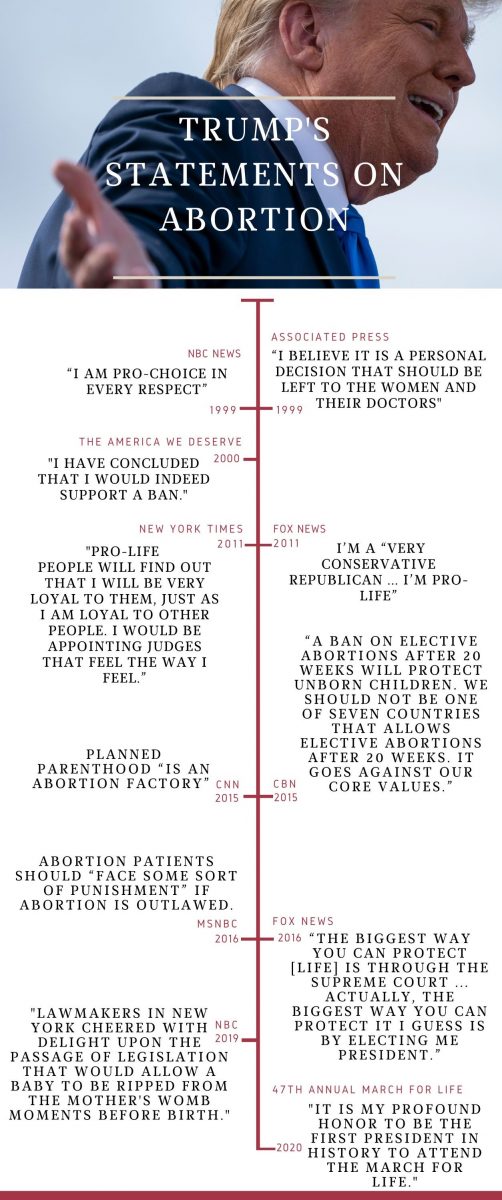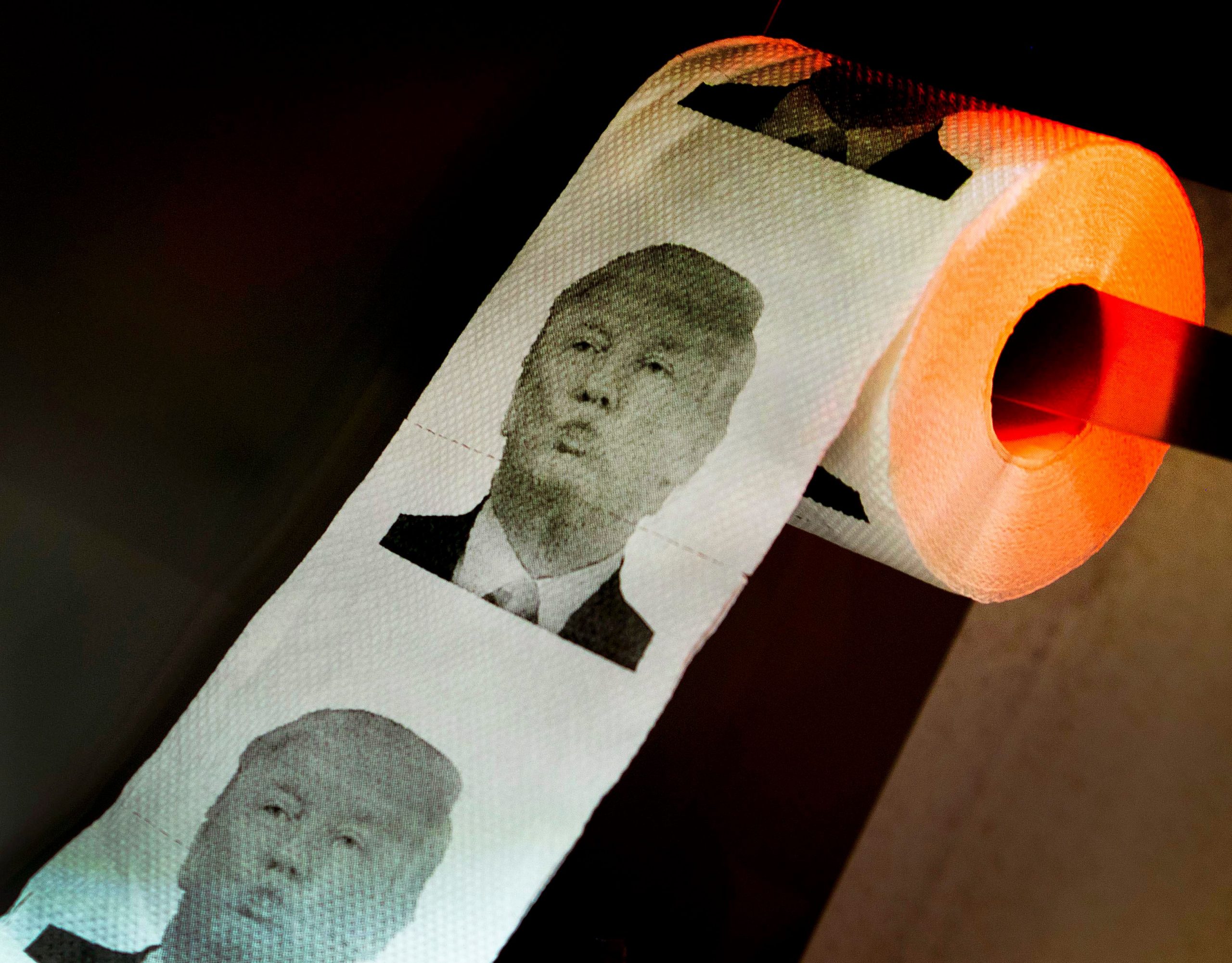President Donald Trump has been doing everything in his power to restrict access to abortion services and prevent scientific research on fetal tissue during his time in the White House.
Yet, on October 7 he posted a video to his Twitter announcing that he had been treated for Covid-19 with a drug made by the company Regeneron – a drug derived from aborted fetal tissue.
Trump hailed this drug as a “cure” and “a blessing from God”, claiming: “I want everybody to be given the same treatment as your president.”
https://twitter.com/realDonaldTrump/status/1313959702104023047?s=20 (no longer available because Twitter banned Trump from the social media platform)
It seems that when his own life is at risk, the man who Vice President Mike Pence described as “the most pro-life president in American history” can put his hard-held hatred of abortion aside.
Furthermore, he wants to make this drug, derived from fetal tissue, available to as many people as possible, meaning he wants to use this scientific practice several millions of times to save his American citizens.
But when the physical and mental well-being of millions of American girls and women are at risk, he has been happy enough to implement policies that force these women to carry their pregnancy to term.
Trump has gone full circle with his abortion beliefs
Trump’s moral compass on abortion swings whichever way benefits him politically in the current climate.

In 1989, at 43 years old, Trump was a successful business-man in liberal, cosmopolitan New York.
That year, Trump co-sponsored a pro-choice fundraiser hosted by the National Abortion Rights Action League.
A whole decade later in 1999, Trump’s pro-choice stance stood strong.
“I am pro-choice in every respect,” he said on NBC, and again to the Associated Press: “I believe it is a personal decision that should be left to the women and their doctors.”
So, when did his stance change?
Coincidentally (or not), his drastic change from pro-choice to pro-life began when he first decided to run for president in 2000.
When discussing late-term abortions in his book The America We Deserve, he wrote: “I have concluded that I would indeed support a ban.”
In 2016, in the run-up to his election, Trump made a clear-cut speech in Las Vegas claiming: “Over time, our culture of life in this country has started sliding toward a culture of death.
“Perhaps the most significant piece of evidence to support this assertion is that since Roe v. Wade was decided by the Supreme Court 43 years ago, over 50 million Americans never had the chance to enjoy the opportunities offered by this country.”
As soon as Trump was elected, in January of 2017, he reinstated and expanded the ‘global gag rule’, which banned overseas groups from US funding if they provide or promote abortion-related services.
He has since been nominating conservative pro-life judges into the supreme court.
In his most recent political statement on the matter, Trump has nominated pro-life judge Amy Coney Barrett as his candidate to replace Ruth Badger Ginsburg in the Supreme Court.
This decision comes as a bitter pill to swallow for the feminist community, as Ginsburg fought for abortion rights and now ‘stepping into her shoes’ is a woman who stated that abortion is “always immoral”.
Trump’s most recent attack on women’s rights, to re-impose restrictions on the abortion pill, failed with a supreme court ruling of 6-2 in opposition on October 8.
But who knows what is to come?
Perhaps the cure for Covid-19 really will rely on aborted fetal tissue, if so, how many pro-life Americans will refuse it?
Will Trump’s pro-life army dwindle as his new position of ‘fetal-tissue drug-taker’ is brought to light?
It is safe to say it is not the first time Donald Trump has drastically changed his mind about a political issue.
But the hypocrisy of his ‘pro-life’ politics has skyrocketed to levels of ludicrousness that even his hard-core Republican worshippers cannot ignore.
It has become clear as day that Trump’s morality, when it comes to abortion, is contingent on political popularity… or his own survival.
Conversations about the ethics of abortion will always exist, but now they may be approached through a different lens.
When Donald Trump’s life is at risk he is quick to utilise the practice of abortion (even if indirectly), so how can one criticise women who have abortions to save their own lives and yet not criticise the president?





